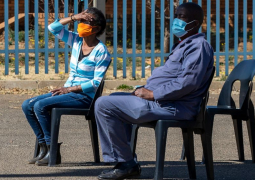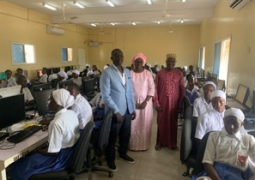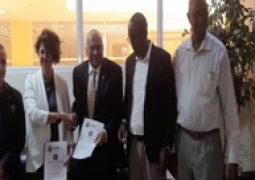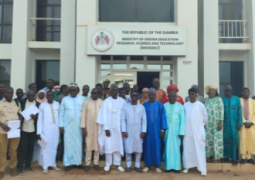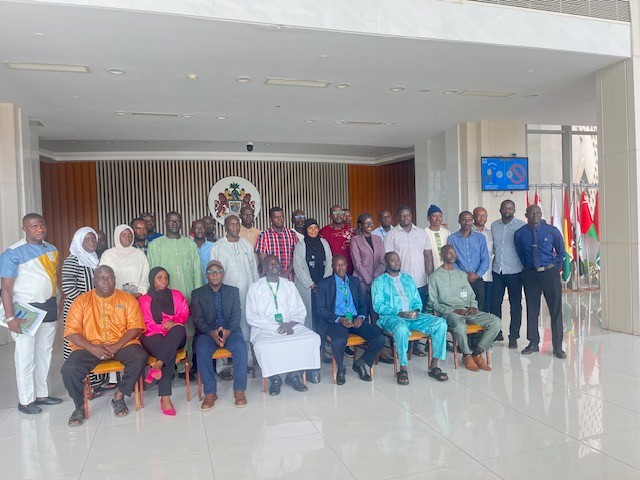
The event held at the Sir Dawda Kairaba Jawara Conference Center on Tuesday, marked a significant step towards combating environmental challenges, which trigger anthropogenic and climate change-induced disasters in our continent.
Addressing participants, Dawda Badjie, Executive Director of the National Environment Agency (NEA), reminded that The Gambia’s membership in the initiative is not only about tree planting, but also about tree growing, ensuring sustainability and long-term ecological benefits.
“No forest, no life. Forests give us oxygen and sustain both humans and wildlife. Planting trees is important, but growing and nurturing them is what will secure our survival,” he said.
He described the Great Green Wall as an imaginary green world stretching from Senegal to Ethiopia, with The Gambia poised to be part of this regional vision.
The project, he added, is backed by the Global Environment Facility (GEF) in collaboration with the United Nations Environment Programme (UNEP).
“The initiative aims to tackle land degradation, desertification, and climate change, while also improving food security, promoting sustainable agriculture, and building community resilience.”
The Great Green Wall, he added, is not just about restoring ecosystems, but also about sowing the seeds of prosperity, unity, and environmental stewardship. This is a framework for collective action and knowledge sharing across Africa.
He thus urged stakeholders to take ownership of the project through active participation, ensuring that policies, institutions, and communities align for sustainable land use management.
Badjie also drew attention to challenges in food production, acknowledging that The Gambia depends heavily on rice imports despite its agricultural potential.
He outlined that sustainable farming practices supported by the Great Green Wall could help improve yields and reduce reliance on imports.
Also speaking, Njagga Touray, Deputy Executive Director at NEA, called on participants to take developmental initiatives with utmost importance, reminding of the project’s preparatory phase: data collection, consultations and inclusive participation.
He also called for team work and regional solidarity. “If you want to go fast, go alone. But if you want to go far, go together. This project is about going far, together,” he reminded.


